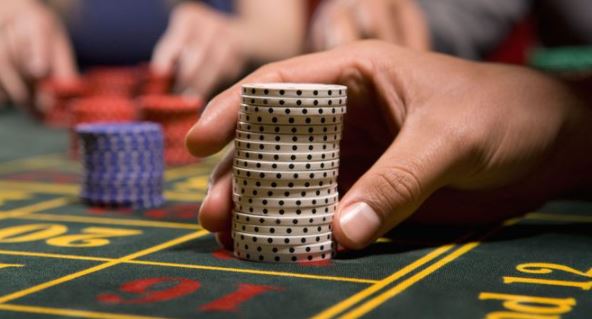
Ever since gambling has been identified, so have been gambling addicts. A game of high risk, probability and uncertainty, gambling, has an insidious effect on an individual.
As per a 2020 study published in the British Medical Bulletin, children are susceptible to problems with gambling because of developmental and cognitive immaturities, as well as a sensitivity to peer pressure and marketing.
Cognitive immaturities include illusions of control over outcomes and limited understanding of probability and statistics.
The paper further says that during puberty, impulsivity and risk-taking behaviours peak in a child and this is the time when children become more susceptible to gambling.
Children and gambling
Young age is like a blank slate. Anything written on it stays for a longer time. How a child would turn out to be depends on what is wiped out from the blank slate and what stays and grows within it.
Young age is very impulsive. Every child loves has an interest in knowing everything without understanding the risks associated with it.
“Experimentation of new activities with peers is a normal part of growing up, and betting on card games and dares with friends is very common. Children are also exposed to playing video games from an early age and are familiar with the platforms and style used in online gambling. In addition, children are susceptible to advertizing, and there is growing concern that they are being targeted by marketing from gambling companies,” says the research study titled Gambling in children and adolescents .
Factors influencing gambling
Studies have highlighted different reasons that influence the interest of a child in engaging in gambling activities. If in a family the parents play gambling it is normal for a kid to pick up this habit. This not only normalizes gambling as an adult activity, but parents can also introduce their children to gambling, the study says and adds that low levels of parental supervision are also associated with increased frequency of gambling in adolescence.
In some kids development traits like hyperactivity and a need for stimulation pushes them towards the uncertainty and excitement in gambling.
Studies have also attributed other factors like low socioeconomic status, lower level of maternal education, low levels of parental monitoring in adolescence, anti-social behaviour among peers, poor academic performance at school or college for gambling addiction in a child.
When does gambling become a problem?
Though it starts with playful bets, gambling does lead to adverse consequences if unchecked.
“While over the past 20 years or so, lots of adolescent risk behaviours like smoking and drinking alcohol have become less common, we are seeing the emergence of new risk behaviours in today’s society. Our research suggests that gambling might be emerging as a new public health issue. The evidence shows that people who gamble earlier in life are more likely to become problem gamblers in adulthood,” Dr Graham Moore, Centre for the Development and Evaluation of Complex Interventions for Public Health Improvement told an international media organisation in 2019. He was a part of the research team that studied on problem gamblers.
The study has associated problem gambling with low self esteem, poor school performance and an inclination towards other forms of addiction. “Problem gambling is associated with lower self-esteem, poorer school performance and an increased risk for other addictions, as well as feelings of guilt, shame and self-hatred,” said GJ Melendez-Torres, the lead author of the research publication.
How should parents deal with gambling in kids?
First of all, do not contemplate if it’s your fault that led the child towards gambling. From the day you notice a behavioural shift in your child try to take action immediately. Teach them about the pros and cons of gambling. Tell them when and how gambling will become a major problem and what are the different ways to get out of the addiction.
Parents should always be on the lookout for telltale signs so that the addiction doesn’t grow on the child.
“Kids with a problem will talk about gambling, watch gambling shows, and lie about their own gambling. Parents will find scratch lottery tickets in drawers, amongst other things,” says Dr. Jeffrey Derevensky, of the Department of Educational and Counseling Psychology at McGill University.
If you are into gambling and want your child to know about it, then teach responsible gambling. Remember, whatever you teach the child stays in the mind for a long time and will be considered the biggest reference.
Do not coerce your child to give up gambling, instead help the child understand what disaster gambling can bring in if it becomes an addiction. Give examples of problem gambling.




